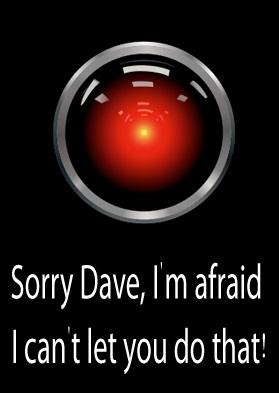|
Before we start lets play a game! Simply: look at these 2 buttons and decide which button to press. Use the timer to determine at which second exactly you made the decision. |
Allow me now to introduce this scientific fact to you:
Your mind may already have made this decision almost 10 seconds before the time you believe you made it.
The Illusion
This experiment has been implemented by many researchers. Participants played similar games while their brains were being monitored. The researchers found there was generally a gap between the time when an activity was detectable in a participant’s head and the time the participant was aware of making the decision.
Not only this, researchers could predict which button the participant would choose by noticing which area in the brain got activated almost 10 seconds before the person signaled making the decision.
[[{"fid":"4846","view_mode":"default","fields":{"format":"default","field_file_image_alt_text[und][0][value]":"John-Dylan Haynes","field_file_image_title_text[und][0][value]":""},"type":"media","attributes":{"class":"media-element file-default"}}]]
I contacted the German scientist Dr.John-Dylan Haynes, who was one of the researchers who conducted this experiment. He told me that this lead period differs according to the decision we make. Braking decisions while driving a car, for instance, can’t wait 10 seconds, but still, decisions happen in our minds before we think we make them.
These experiment can lead people to wonder whether free will is an illusion. Are people just biological machines who do what they are programmed to do by genes and environment? According to this viewpoint, the sense of free will is just an illusion because all our decisions are predetermined in own minds.
This raises two important questions:
Are we really free to do whatever we want?
What can Positive Psychology do about that?
Freedom in Positive Psychology
Humanistic psychology considers that humankind has a unique nature that cannot be studied only biologically. Positive Psychology focuses on many subjective constructs that are related to the idea of freedom. For example, in self determination theory, autonomy is in the core of our motivational system, Having the chance to make free choices in our lives can give us psychological and physiological benefits. Researchers Judge and Bono have found that feeling that we control our lives predicts high job satisfaction and better job performance.
Sonja Lyubomirsky found that about 40% of the variation in happiness across a population is attributable to intentional activities rather than genetic or environmental factors. Isn’t she talking about making free decisions?
Mind vs Subconscious Mind!
If freedom is that important, how can we reconcile Positive Psychology with studies that appear to undermine free will?
Well, we can interpret these studies differently. They tell us that our behaviors are controlled by an automatic pilot subconscious mind, which is responsible for our initial thoughts, urges, and spontaneous actions. It seems that this automatic pilot is in charge most of the time. Can we interfere and take over when we need to do so?
Modified from wikipedia image
Hal 9000 from Space Odyssey
Modified from wikipedia image
Sometimes, the automatic pilot wants something we don’t want to want, such as eating junk food, smoking, or procrastinating. A fight between will power and the automatic pilot results in psychological conflict.
In the 2 button experiment, there is no conflict. The automatic pilot suggested choosing something, and the conscious mind doesn’t mind! There is no need to resist the automatic pilot here. That’s why it doesn’t matter to you that the scientists caught the signal of the automatic pilot deciding which button to choose before you were aware of the decision. Does this eliminate your free will?
In other words, you can always veto the subconscious decision if you want. Libet reports that this veto brain activity has been detected in another study, when people rejected the initial decision!
It can be argued that expressing free will, is the ability to resist the unwanted urges and the decisions made by the subconscious mind. This ability to take over the automatic pilot is will-power, also known as self-regulation or self-control.
It seems that the true expression of freedom is having self-control over our deep desires. So, are you strong enough to control this autopilot, and thus be really free?
Sometimes, defeating the automatic pilot is not an easy task.
How can we strengthen our will?
Positive Psychology provides us with the many tools to do that. In my next article, I’ll talk about some of them. See you then!



